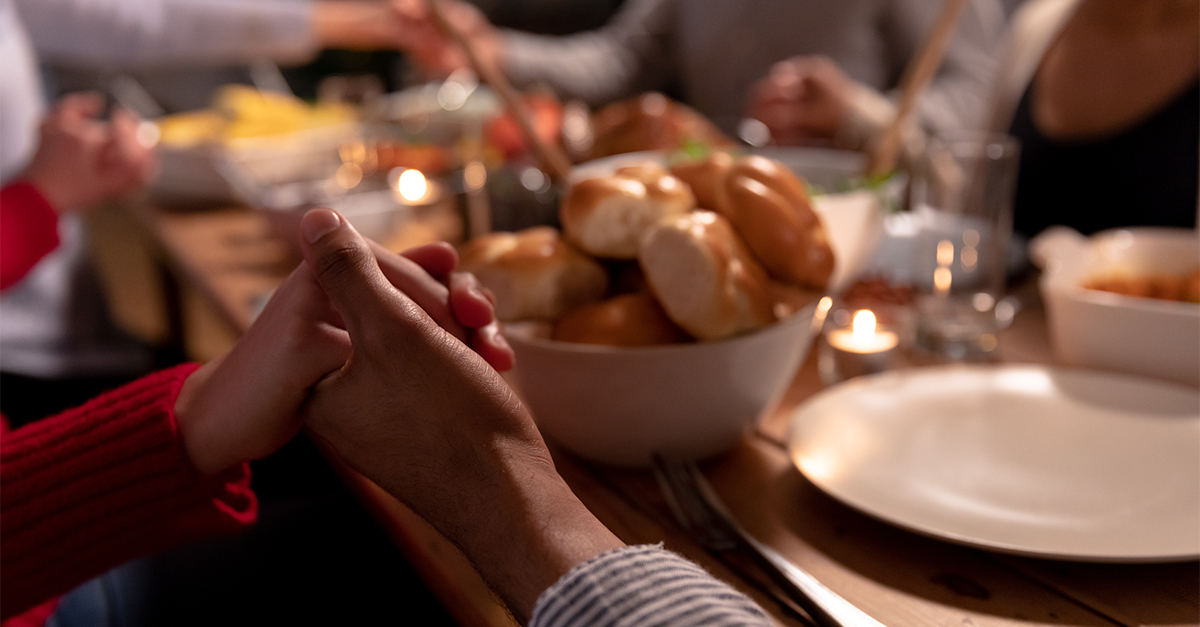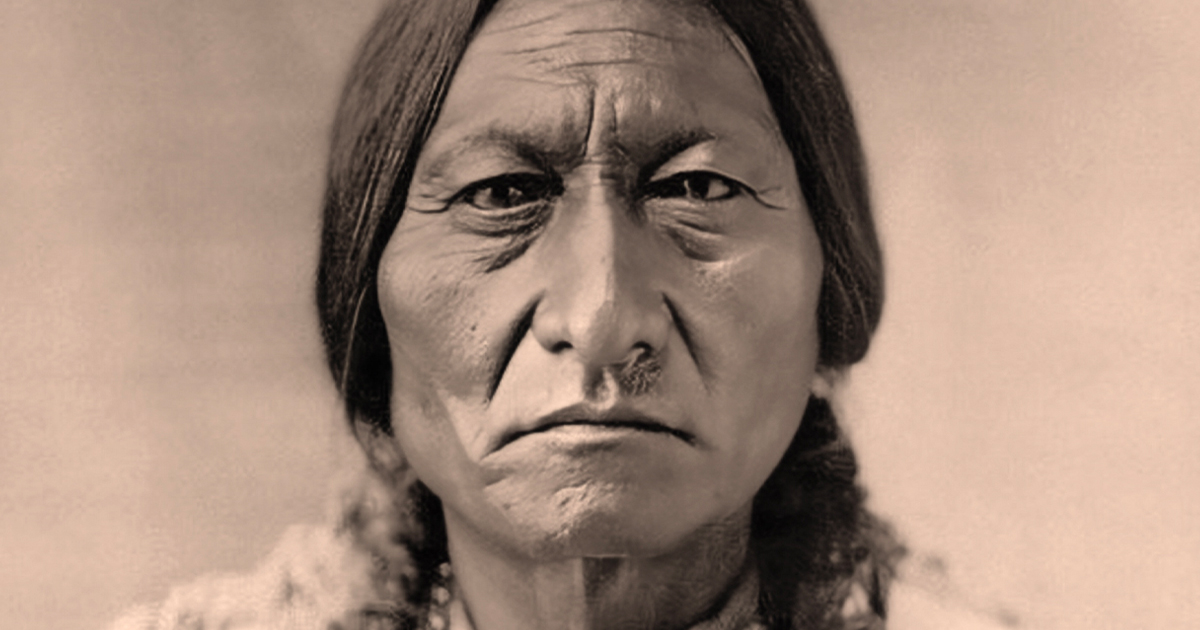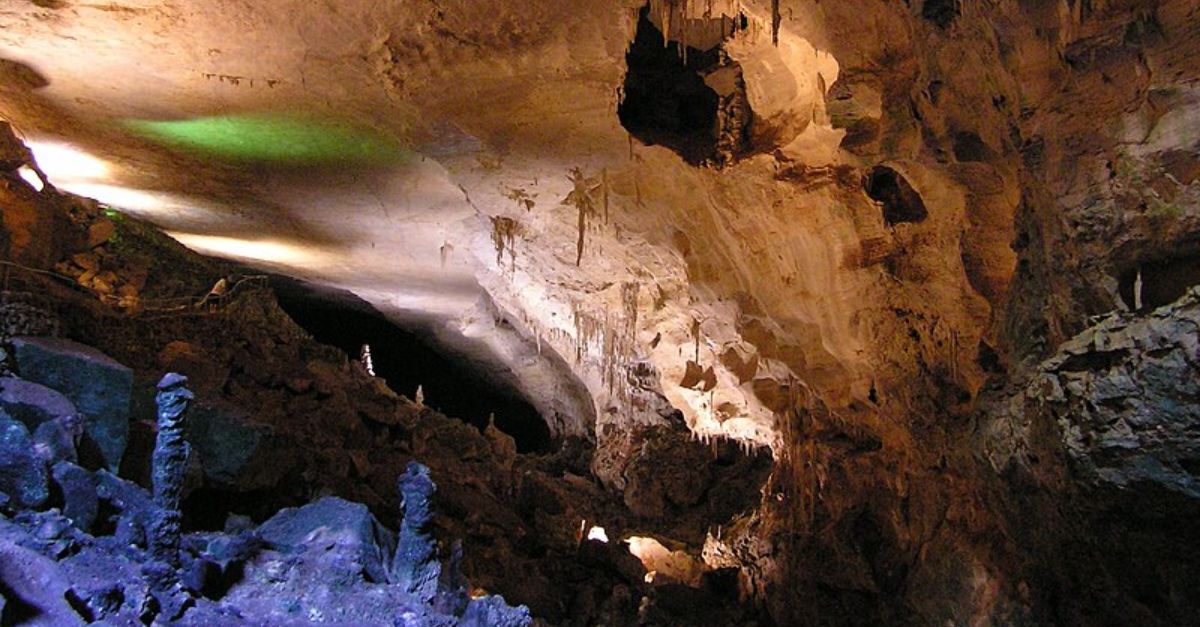Times Square’s The Place To Be
Since the beginning of the 20th century, NYC’s Times Square has witnessed countless celebrations, but none more dazzling than the New Year's Eve festivities. Timeless moments captured in photos show the evolution of this one-of-a-kind tradition.
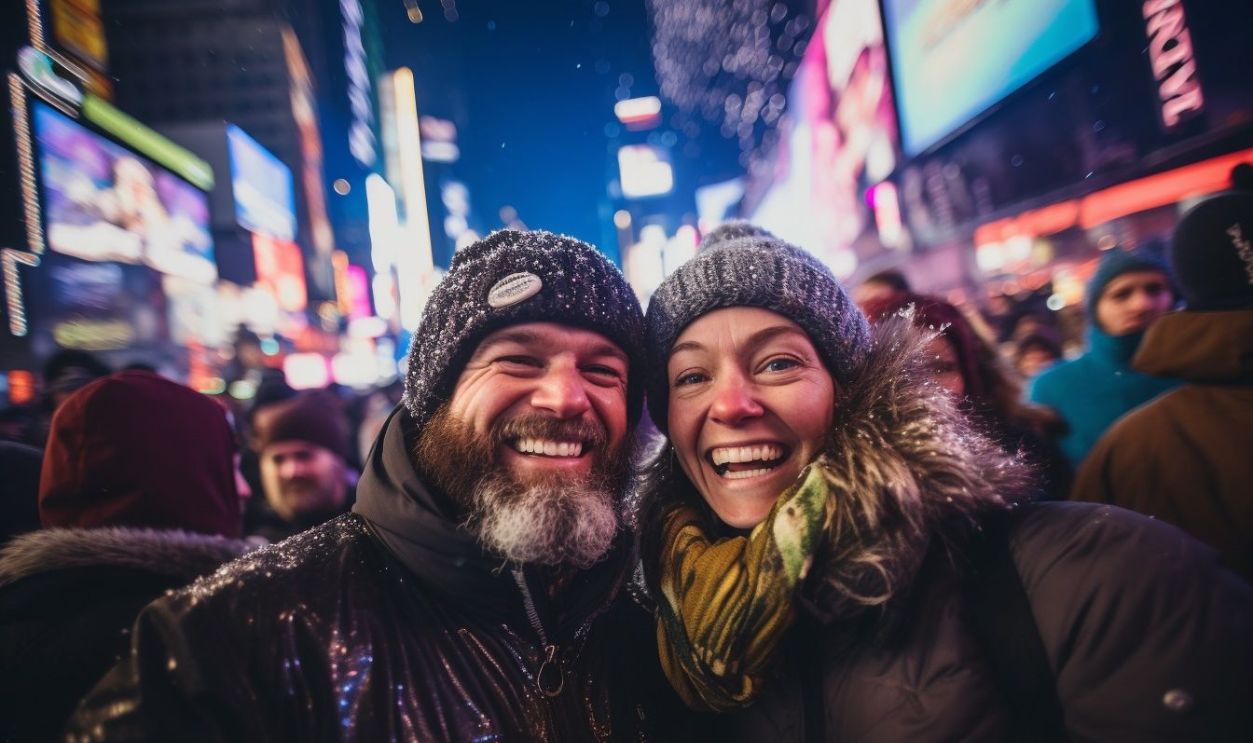
The First Celebration Took Place In 1904
The first NYC New Year's Eve celebration took place on December 31, 1904. No balls were involved, though, as fireworks were used to announce the beginning of the new year. More than 200,000 people attended.
It Was Actually About The New York Times
As a matter of fact, the Times Square celebration owes its origin to the New York Times. When the newspaper relocated its headquarters to the area, the publisher, Adolph Ochs, wanted to celebrate the new building with a grand spectacle.
 unknown artists, Wikimedia Commons
unknown artists, Wikimedia Commons
But Many Thought It Wasn't The Perfect Location
NYT was previously located near the City Hall, and many people thought that moving to that remote location wasn't smart. But Ochs was determined to prove them wrong. He came up with the idea of a celebration that would become a global tradition.
 Unknown Author, Wikimedia Commons
Unknown Author, Wikimedia Commons
One Times Square
Located at One Times Square, Ochs chose the headquarters to announce the birth of his new publication. Although the city banned fireworks, his celebration attracted immense crowds, firmly planting the seeds for what would grow into one of the world's most iconic New Year's Eve celebrations.
 Unknown Author, Wikimedia Commons
Unknown Author, Wikimedia Commons
Borrowed From The Trinity Church
In previous years, people would gather around the Trinity Church to celebrate the New Year. Ochs wanted a more significant celebration to attract a bigger audience, and the newspaper's main electrician suggested using a time ball.
 Irving Underhill, Wikimedia Commons
Irving Underhill, Wikimedia Commons
But the First Significant Celebration Took Place In 1907
While earlier festivities were grand, the first significant New Year's Eve celebration at Times Square as we know it today occurred in 1907. This marked the debut of the illuminated ball drop and lightwork as the event's highlight.
 Times Square Ball Drop Rehearsal 1967 (RARE TO DEATH!!!) by Michael Rodriguez
Times Square Ball Drop Rehearsal 1967 (RARE TO DEATH!!!) by Michael Rodriguez
An Immigrant Built The Ball
The original ball, crafted in 1907, was the creation of Jacob Starr, a metalworker who had emigrated to the United States. Starr's craftsmanship reflected the spirit of New York City—a city shaped by immigrants from around the world.
 Times Square Ball Drop Rehearsal 1967 (RARE TO DEATH!!!) by Michael Rodriguez
Times Square Ball Drop Rehearsal 1967 (RARE TO DEATH!!!) by Michael Rodriguez
Such A Significant Ball
Starr built a ball of wood and iron, and some sources mention that it weighed 700 pounds. It was decorated with more than 100 light bulbs for an eye-catching display and it was 5 feet in diameter.
 Times Square Ball Drop Rehearsal 1967 (RARE TO DEATH!!!) by Michael Rodriguez
Times Square Ball Drop Rehearsal 1967 (RARE TO DEATH!!!) by Michael Rodriguez
He Got Lucky
Thanks to the success of his creation, Starr later went on to found Artkraft Strauss, a sign design and consulting company. For most of the 20th century, this company would be responsible for lowering the ball as well as creating unforgettable displays for the festival.
 Anthony Quintano, CC BY 2.0, Wikimedia Commons
Anthony Quintano, CC BY 2.0, Wikimedia Commons
Teamwork Paid Off
In 1907, Starr hired a team of six men to lower the magnificent ball on time. The first ball drop started 10 seconds before the beginning of 1908. It was connected to a circuit that lit signs on the sides of the Times Tower.
 Ball Drops (1908-2024) by GMD (MOVED)
Ball Drops (1908-2024) by GMD (MOVED)
He Used More Than Just A Ball
Starr wanted to dazzle the audience, so some reports mentioned that he also asked workers in nearby restaurants and hotels for help. Each was given a special hat powered by a battery that was connected to tiny light bulbs.
 Times Square Ball Drop Rehearsal 1967 (RARE TO DEATH!!!) by Michael Rodriguez
Times Square Ball Drop Rehearsal 1967 (RARE TO DEATH!!!) by Michael Rodriguez
A True Work Of Art
At midnight, the workers were signaled to flip the switch on their hats. This caused the light bulbs to switch on and create a dazzling display. Every year, the audience would gather to see something different.
 Ball Drops (1908-2024) by GMD (MOVED)
Ball Drops (1908-2024) by GMD (MOVED)
More Innovation To Follow
Since its debut in 1907, the New Year's Eve ball has undergone seven transformations, each reflecting advances in technology and design. The original iron and wood construction changed into today's dazzling LED-covered masterpiece with an evolution that mirrors the changing face of Times Square and the city itself.
 Ball Drops (1908-2024) by GMD (MOVED)
Ball Drops (1908-2024) by GMD (MOVED)
New York Times Moved
In 1913, New York Times moved to a new headquarters. Those who gather every year for the festivals wondered if the tradition would be canceled. Luckily, the Times still maintained ownership of the famous tower, and this meant that the celebrations would continue.
 Anthony Quintano, CC BY 2.0, Wikimedia Commons
Anthony Quintano, CC BY 2.0, Wikimedia Commons
A New Ball In The Block
For the 1920s celebration, the ball was in for a makeover. The new ball was solely made of iron, which decreased its weight to 400 pounds instead of 700 pounds. The lights and banners stayed though.
 Ball Drops (1908-2024) by GMD (MOVED)
Ball Drops (1908-2024) by GMD (MOVED)
It Was Now Recorded
With the evolution of recording devices, it was time to record Times Square's celebrations. Footage has survived to show us how people used to celebrate the New Year 100 years ago with the iconic ball drop.
 Ball Drops (1908-2024) by GMD (MOVED)
Ball Drops (1908-2024) by GMD (MOVED)
Everyone Took Part
Those who weren't on the street at the time of the ball drop were actually throwing confetti and celebrating in their homes or hotel rooms. Today, booking a view of the ball drop is one of the most expensive things you could plan for the New Year.
 Nichole A. Hall, Wikimedia Commons
Nichole A. Hall, Wikimedia Commons
A Little Addition
Every year, the organizers would add something different to make the celebration a little more special. In 1937, balloons were dropped from nearby buildings sending the crowds into a frenzy in a celebration that every New Yorker cherished and loved.
 [RARE] New Year's Eve in Times Square 1936-37 (December 31, 1936) (WITH BALL DROP) by nyeSStickman
[RARE] New Year's Eve in Times Square 1936-37 (December 31, 1936) (WITH BALL DROP) by nyeSStickman
The Tradition Went On
From well-lit banners to lights decorating nearby buildings, the tradition just kept getting bigger and better. This also meant that more people would come to Times Square to attend the celebration. The spot was becoming one of the busiest in the Big Apple.
 Times Square, New Year's Eve, 1939 by Contemporary Films
Times Square, New Year's Eve, 1939 by Contemporary Films
But It Was Subject To A Halt
However, in 1942, celebrations had to be ceased due to wartime lighting restrictions. This also continued in the 1943–1944 event. Nevertheless, people gathered in a moment of silence in solidarity. Ben Grauer would broadcast the celebration on radio and TV.
 National Broadcasting Company, Wikimedia Commons
National Broadcasting Company, Wikimedia Commons
The Ball Got Bigger
After the war, the second ball stayed in use until the 1954–1955 event. For the following year, it would be replaced with a third bigger ball that measured 6 feet in diameter. This new ball was made of aluminum, which made it lighter, and weighed only 150 pounds.
The Countdown Began
It wasn't until the 1960s that the crowds started to take an active part in the festivals. This was when they began the well-known countdown from 10 until midnight. However, the countdown was only available in TV specials.
 EVERY New Year's Ball Drop In Times Square (1953-2024) by NYREguy2003
EVERY New Year's Ball Drop In Times Square (1953-2024) by NYREguy2003
People Wanted To Participate
In 1979, the crowd standing in Times Square became an integral part of the celebration. This is when thousands of people gathered to count down, with their contribution becoming a tradition that would continue for decades.
 New Years Eve at Times Square - 1979 - 1980!! by videoholic50s60s70s
New Years Eve at Times Square - 1979 - 1980!! by videoholic50s60s70s
The Big Apple
It was time for another change, and this time, the ball was changed into a big apple, colored in red. No detail was ignored, including the big green stem. This new look was designed as an homage to the Big Apple nickname.
I Love New York
This new apple-shaped ball would be in use from 1981 till 1987 for the I Love New York campaign. During the 1987–1988 event, an extra leap second was added to account for the adjusted time to align with the UTC times, five hours before NYC's.
 New Year's Eve ABC Ball Drop (1950-2024) UPDATED! [BEST VERSION] by dodonation
New Year's Eve ABC Ball Drop (1950-2024) UPDATED! [BEST VERSION] by dodonation
The Ball Was Back
In the 1988–1989 celebration, a more prominent white ball came back. People were impressed with this new ball and accordingly more people would gather for the show. Attending the festival became a family tradition for New Yorkers.
 New Years Ball Drop 1988 - 1989 by The1980sGuy
New Years Ball Drop 1988 - 1989 by The1980sGuy
Replaced With Flag Colors
As US soldiers were taking part in the Gulf War, the white ball had to go through another makeover. Its traditional white lights were replaced with white, red, and blue bulbs for the 1990–1991 event to reflect the American flag's colors.
 New Year's Eve ABC Ball Drop (1950-2024) UPDATED! [BEST VERSION] by dodonation
New Year's Eve ABC Ball Drop (1950-2024) UPDATED! [BEST VERSION] by dodonation
A New Update
People were to witness a new and updated ball for the 1995–1996 event. It came with an aluminum skin and a new computerized lighting system that features 180 halogen bulbs and 12,000 rhinestones.
 New Year's Eve ABC Ball Drop (1950-2024) UPDATED! [BEST VERSION] by dodonation
New Year's Eve ABC Ball Drop (1950-2024) UPDATED! [BEST VERSION] by dodonation
Computers Took Over
Lighting designer Barry Arnold wanted to design something unique to celebrate the approaching millennium celebrations. For this year's events, a computer system was used for the first time to lower the ball. Broadcasting the event on TV became another tradition.
 New Year's Eve ABC Ball Drop (1950-2024) UPDATED! [BEST VERSION] by dodonation
New Year's Eve ABC Ball Drop (1950-2024) UPDATED! [BEST VERSION] by dodonation
It Didn't Go As Planned
For the first computerized dropdown, an electric winch was synchronized with the time provided by the National Institute of Standards and Technology. However, during the dropdown, the ball stopped midway because of a glitch that didn't cause much damage.
 New Year's Eve ABC Ball Drop (1950-2024) UPDATED! [BEST VERSION] by dodonation
New Year's Eve ABC Ball Drop (1950-2024) UPDATED! [BEST VERSION] by dodonation
An Improved System Was Needed
John Trowbridge was hired as the drop's new technical director for the 1996–1997 celebration. He streamlined the process and the dropdown went on without any problems. No technical issues have been reported since then.
 New Year's Eve Ball Drop - 1997 (No Commentary) by BlueOceanBelow Lives
New Year's Eve Ball Drop - 1997 (No Commentary) by BlueOceanBelow Lives
The Ball Was Retired
After several years in use, the improved third ball made its final appearance in the 1998–1999 event. The organizers thought that they needed a bigger and more flashy one, so they put this ball on display at the Jamestown Group's Atlanta's headquarters.
 New Year's Eve Ball Drop - 1997 (No Commentary) by BlueOceanBelow Lives
New Year's Eve Ball Drop - 1997 (No Commentary) by BlueOceanBelow Lives
A New Ball Was Announced
Before retiring the third ball, the organizers announced that a new ball was in the making. The new millennium celebration would attract more sponsors. Actor and activist Ron Silver organized several festivals as part of the NYC 2000 committee.
 John Mathew Smith, CC BY-SA 2.0, Wikimedia Commons
John Mathew Smith, CC BY-SA 2.0, Wikimedia Commons
The Millennium Celebrations
All-day celebrations were planned to take place and were broadcast on ABC. This included concerts that were attended by thousands of people. Michael Curry organized puppet shows to represent countries entering the new year at every hour.
 Paul Mannix, CC BY 2.0, Wikimedia Commons
Paul Mannix, CC BY 2.0, Wikimedia Commons
A Fourth Ball Was Designed
The new fourth ball measured 6 feet in diameter, just like the third one, but it was heavier, weighing more than 1000 pounds. It contained more than 600 halogen bulbs, 96 strobe lights, and 504 triangle-shaped crystals with mirrors installed to reflect the lights.
 New Year's Eve ABC Ball Drop (1950-2024) UPDATED! [BEST VERSION] by dodonation
New Year's Eve ABC Ball Drop (1950-2024) UPDATED! [BEST VERSION] by dodonation
Message To The World
Waterford's factory in Ireland manufactured the ball and then it was shipped to NYC for the celebrations. The crystal panels carried positive messages of hope for mankind shining through, thanks to the motorized mirrors.
 Hunter Kahn, Wikimedia Commons
Hunter Kahn, Wikimedia Commons
Hope For Healing
After the 9/11 events, the organizers wanted to send a message to the world with the 2001–2002 event. The celebration revolved around the theme of Hope for Healing to show that the people of NYC would rise again.
 New Years Eve - 2001-2002 - ABC by MSTS1
New Years Eve - 2001-2002 - ABC by MSTS1
A Tribute To Those Who Stepped In
As a token of appreciation, the organizers engraved the names of the countries and organizations that offered help to the victims. Before its retirement, the new ball would be modified to become a permanent attraction at the top of the One Times Square Building.
 New Year's Eve ABC Ball Drop (1950-2024) UPDATED! [BEST VERSION] by dodonation
New Year's Eve ABC Ball Drop (1950-2024) UPDATED! [BEST VERSION] by dodonation
The Current Ball
The Fifth ball was announced for the 100th anniversary of the dropdown. It was also manufactured by Waterford Crystal, but it was heavier as it contained LED lights for the first time. It still measured 6 feet in diameter.
 2007-2008 New York City Times Square Ball Drop (Clean) by Alvin
2007-2008 New York City Times Square Ball Drop (Clean) by Alvin
New Technology
LED light bulbs could provide more than 16 million colors and make the ball more energy-efficient. The organizers used an advanced computerized system and claimed that the new ball consumed energy equal to 10 toasters.
 2007-2008 New York City Times Square Ball Drop (Clean) by Alvin
2007-2008 New York City Times Square Ball Drop (Clean) by Alvin
All-Year Long
As of 2009, an online broadcast was available. The organizers decided that they wanted a ball that could be displayed after the celebrations were over. They designed a bigger icosahedral geodesic sphere and made it weatherproof, with more than 32,000 LED bulbs.
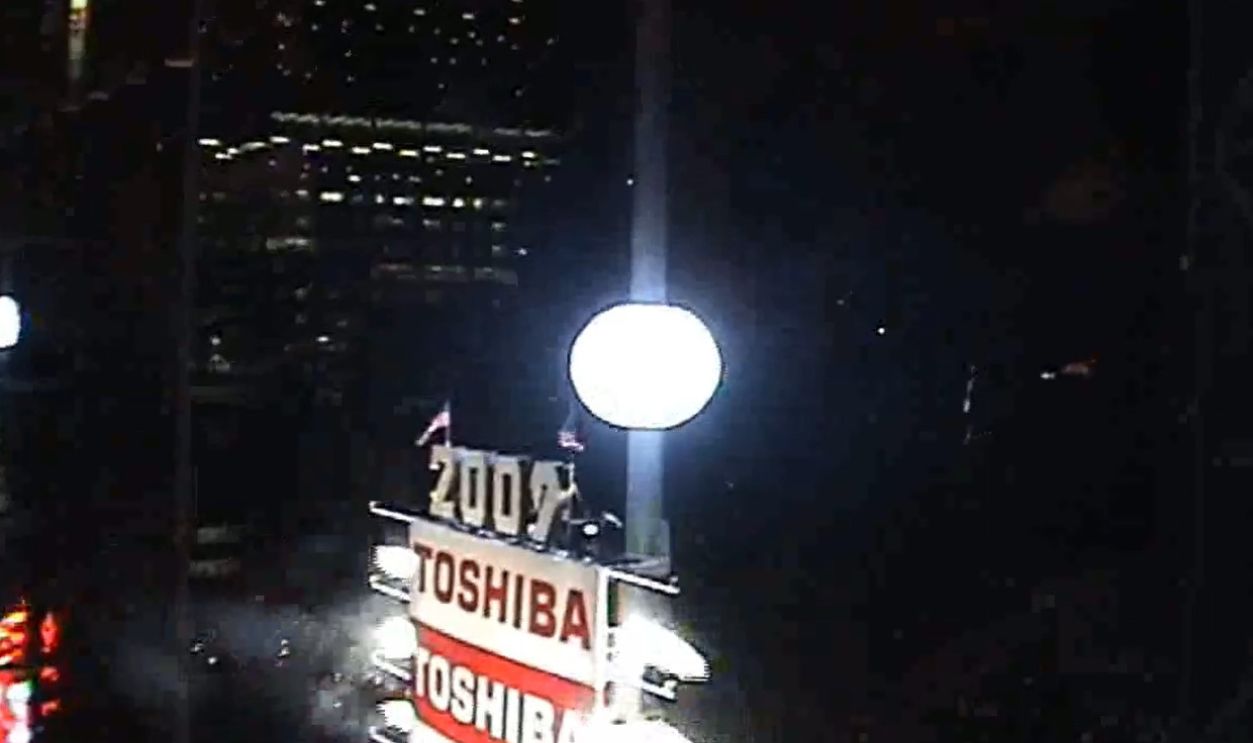 New Year's Eve (2008-2009) in Times Square, New York City by andrewdrums175
New Year's Eve (2008-2009) in Times Square, New York City by andrewdrums175
It Became More Inclusive
During the 2010s, Toshiba became responsible for the big billboards at Times Square. As a result, a daytime countdown was held at 10 in the morning, which corresponds to midnight in Japan. Philips Hue multi-color LED lamps were used for the 2014 party.
 New Year's Eve (2008-2009) in Times Square, New York City by andrewdrums175
New Year's Eve (2008-2009) in Times Square, New York City by andrewdrums175
Limited Celebrations
Due to the lockdown, the 2020–2021 celebration was closed to the public and only attended by members of the press, frontline workers, and some guests. However, augmented reality camera filters were used by people who couldn't attend.
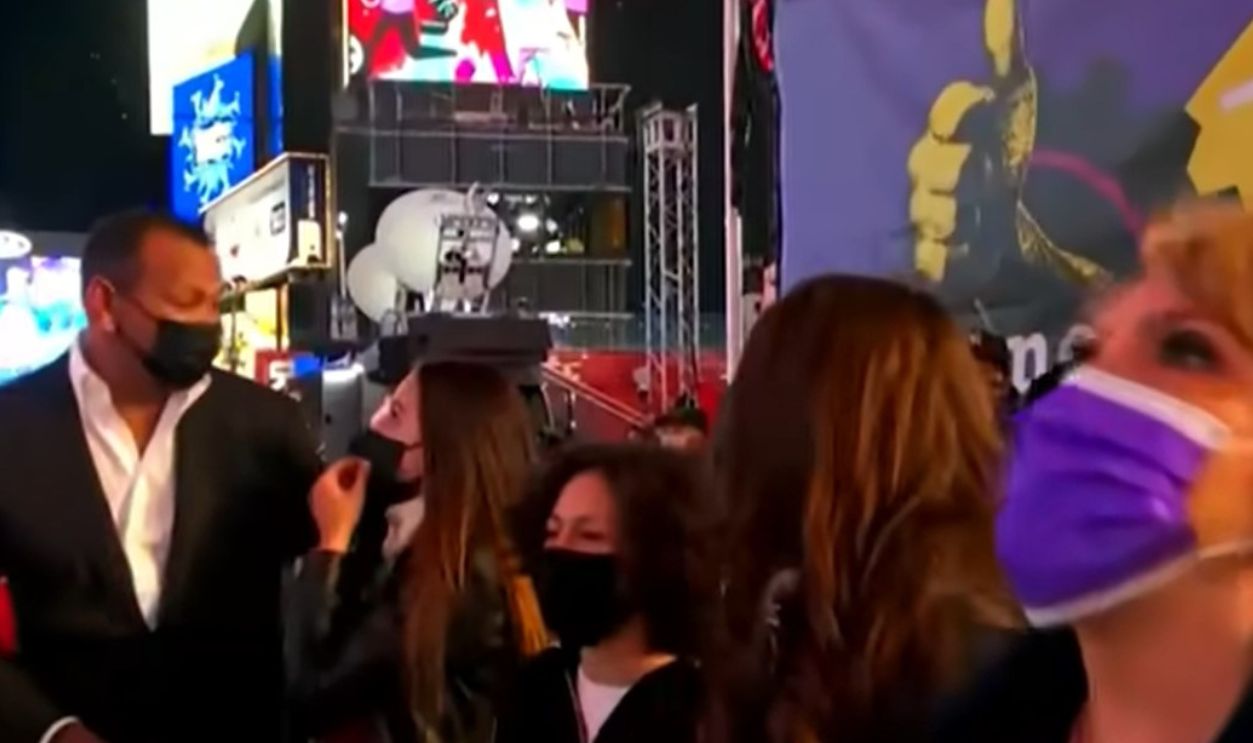 New Year's Eve 2021 celebration in Times Square, New York City | USA TODAY by USA TODAY
New Year's Eve 2021 celebration in Times Square, New York City | USA TODAY by USA TODAY
It Felt Different
Many people were disappointed, but they eventually watched a virtual version of the mesmerizing ball drop. Trowbridge was in quarantine in a nearby hotel, and he directed the digital celebration instead of lowering the ball.
 New Year's Eve 2021 celebration in Times Square, New York City | USA TODAY by USA TODAY
New Year's Eve 2021 celebration in Times Square, New York City | USA TODAY by USA TODAY
More Celebrations To Follow
In 2022, a new observation deck was added to the building, and the unused floors were changed into an exhibition. Sponsors were allowed to add their motifs to the ball. And we know new tech is going to make the coming celebrations even more exciting.
 New Yorkers welcome 2022 with Times Square ball drop by Reuters
New Yorkers welcome 2022 with Times Square ball drop by Reuters





